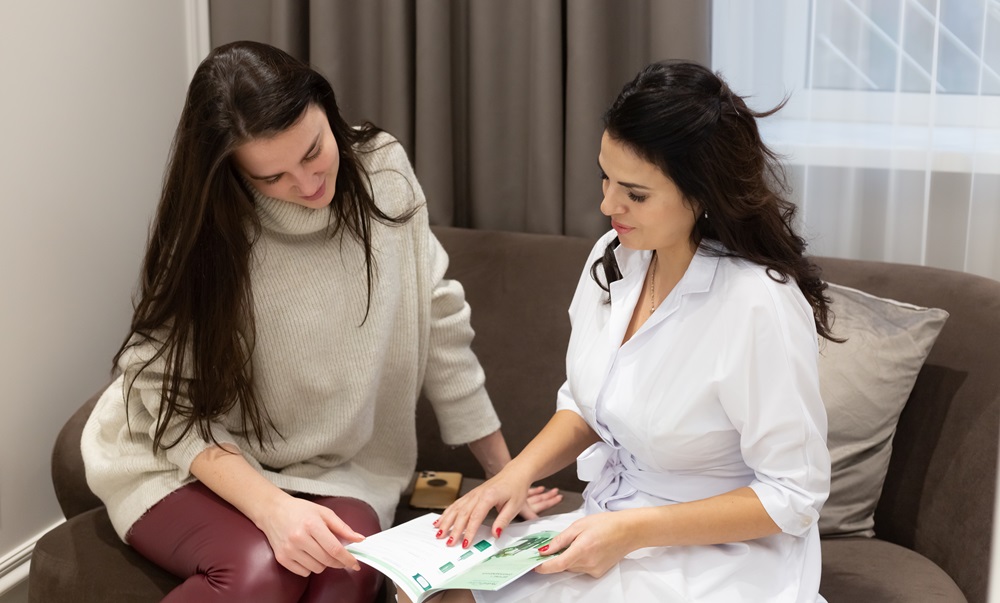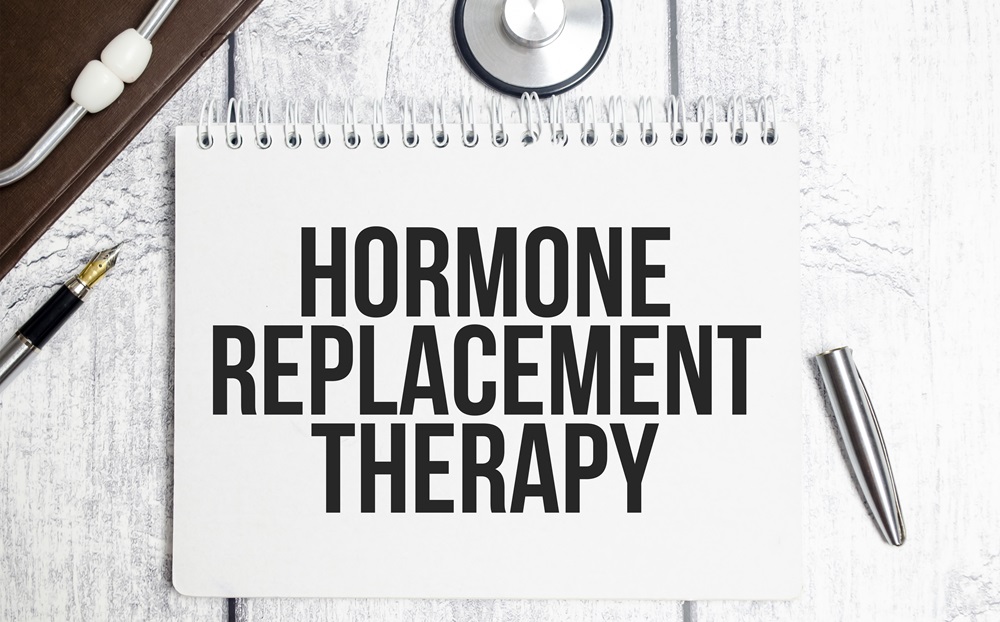You’re not imagining it – menopause really does mess with your sleep. Those 3 AM wake-ups, night sweats, and restless tossing aren’t just “part of getting older.”
They’re linked to hormonal changes that hormone therapy can actually address.
Understanding the benefits of hormone replacement therapy in menopause helps you make informed decisions about getting your sleep back on track.
What Happens to Your Sleep During Menopause?
Your hormones control more than you might think. When estrogen and progesterone levels drop during menopause, your sleep architecture changes completely.
You spend less time in deep sleep and more time in lighter stages that leave you feeling tired.
Research shows that 78% of menopausal women experience sleep problems. These aren’t minor inconveniences – they’re serious disruptions that affect your daily life.
Hot flashes wake you up multiple times per night, and once you’re awake, falling back asleep becomes a struggle.
The connection runs deeper than just temperature regulation. Progesterone acts as a natural sedative, helping you fall asleep and stay asleep. When levels plummet, your brain loses this built-in sleep aid.
How Hormone Therapy Transforms Your Sleep
Temperature Control
Hormone therapy tackles the root cause of night sweats and hot flashes. Studies indicate that 85% of women see significant improvement in vasomotor symptoms within 12 weeks of starting treatment. When your body temperature stays stable, you sleep through the night instead of throwing off covers every few hours.
Sleep Architecture Restoration
HRT doesn’t just help you sleep longer – it helps you sleep better. Research from the Sleep Medicine Reviews journal found that women on hormone therapy spent 23% more time in deep sleep compared to those without treatment.
This matters because deep sleep is when your body repairs itself and consolidates memories.
| Sleep Stage | Before HRT | After HRT (3 months) |
| Deep Sleep | 12% of night | 18% of night |
| REM Sleep | 16% of night | 21% of night |
| Light Sleep | 72% of night | 61% of night |
Mood and Anxiety Improvement
Poor sleep and mood problems create a vicious cycle during menopause. You can’t sleep because you’re anxious, and you’re more anxious because you can’t sleep.
Hormone therapy breaks this pattern by stabilizing the hormones that affect both sleep and emotional regulation.
Real Results from Hormone Therapy
The numbers tell a clear story. A large-scale study published in Menopause journal tracked 2,400 women for two years. Those using hormone therapy reported:
- 67% reduction in night wakings
- Average sleep duration increased from 5.2 to 7.1 hours per night
- Sleep quality scores improved by 40% on standardized assessments
- Daytime fatigue decreased by 52%
These improvements typically begin within the first month of treatment, with maximum benefits reached around the three-month mark.
Different Types Make Different Impacts
Not all hormone therapy works the same way for sleep. Systemic estrogen therapy (pills, patches, gels) provides the most comprehensive sleep benefits because it addresses hot flashes, mood, and sleep architecture simultaneously.
Progesterone deserves special attention here. Whether you take it as part of combination therapy or alone, this hormone has direct sedating effects. Many doctors recommend taking progesterone at bedtime because it naturally promotes sleepiness.
Local treatments like vaginal estrogen help with specific symptoms but won’t dramatically change your overall sleep patterns. They’re better suited for addressing discomfort that might wake you up rather than fundamental sleep problems.
What to Expect Timeline-wise
Your sleep won’t transform overnight, but you should notice changes fairly quickly:
- Week 1-2: Hot flashes begin decreasing in frequency and intensity
- Week 3-4: You start sleeping for longer stretches without waking
- Month 2-3: Sleep quality improves significantly, with more time in restorative sleep stages
- Month 4-6: Maximum benefits achieved, with stable sleep patterns established

Important Considerations for Better Sleep
Hormone therapy works best as part of a comprehensive approach. You still need good sleep hygiene – keeping your bedroom cool, avoiding screens before bed, and maintaining consistent sleep times. But unlike the endless list of sleep tips that barely help during menopause, HRT addresses the underlying hormonal disruption.
Timing matters when you take your hormones. Many women find that taking estrogen in the morning and progesterone at night optimizes both energy levels and sleep quality.
Work with your healthcare provider to find the right type and dose for your specific situation.
What works perfectly for your friend might not be ideal for you, and that’s completely normal.
The goal isn’t just sleeping through the night – it’s waking up refreshed and ready for your day.
When your hormones are balanced, quality sleep becomes possible again.
The benefits of hormone replacement therapy in menopause extend far beyond just feeling rested, but good sleep forms the foundation for everything else.
Frequently Asked Questions
Why does menopause affect my sleep so much?
Answer: Falling estrogen and progesterone levels disrupt sleep architecture, reduce deep sleep, and trigger hot flashes and night sweats. Since progesterone has sedative properties, losing it makes it harder to fall and stay asleep.
How can hormone therapy improve sleep during menopause?
Answer: HRT stabilizes body temperature to reduce hot flashes, restores deeper sleep stages, and improves mood and anxiety that often worsen sleep problems. Research shows women on HRT spend more time in deep and REM sleep and wake less often at night.
How quickly will I notice sleep improvements with hormone therapy?
Answer: Many women notice fewer hot flashes within 1–2 weeks, longer stretches of sleep by weeks 3–4, and significant deep sleep improvements by 2–3 months. Maximum benefits usually appear after 4–6 months of consistent treatment.
What type of hormone therapy is best for sleep issues?
Answer: Systemic estrogen (pills, patches, gels) works best for overall sleep improvement, since it helps hot flashes, mood, and sleep cycles. Progesterone also has sedative effects, especially when taken at bedtime. Local vaginal estrogen may relieve discomfort but won’t significantly improve overall sleep.
Does hormone therapy improve daytime energy too?
Answer: Yes. Studies show women on HRT sleep longer and better, reducing daytime fatigue by more than 50%. Better nighttime rest naturally leads to more energy, focus, and improved mood during the day.
Do I still need good sleep habits if I’m on hormone therapy?
Answer: Yes. HRT tackles the hormonal root cause, but consistent sleep hygiene—keeping your room cool, limiting screens before bed, and maintaining a regular sleep schedule—helps maximize results.
Is hormone therapy safe for everyone?
Answer: Not all women are candidates. Safety depends on your health history, age, and risk factors. That’s why it’s important to work with your healthcare provider to choose the right type and dose for you.
Will my sleep return to normal overnight once I start HRT?
Answer: No, improvements are gradual. Hot flashes often calm down first, followed by longer sleep stretches, then deeper, restorative sleep. Most women see significant progress within 3 months.
What’s the difference between sleep benefits from estrogen vs. progesterone?
Answer: Estrogen stabilizes body temperature and improves sleep architecture. Progesterone directly promotes sleepiness and relaxation, especially when taken before bed. Many women benefit from a combination of both.
Are the sleep benefits of hormone therapy proven?
Answer: Yes. Clinical studies show women on HRT sleep nearly 2 hours longer per night, wake up less often, and report a 40% improvement in sleep quality.


